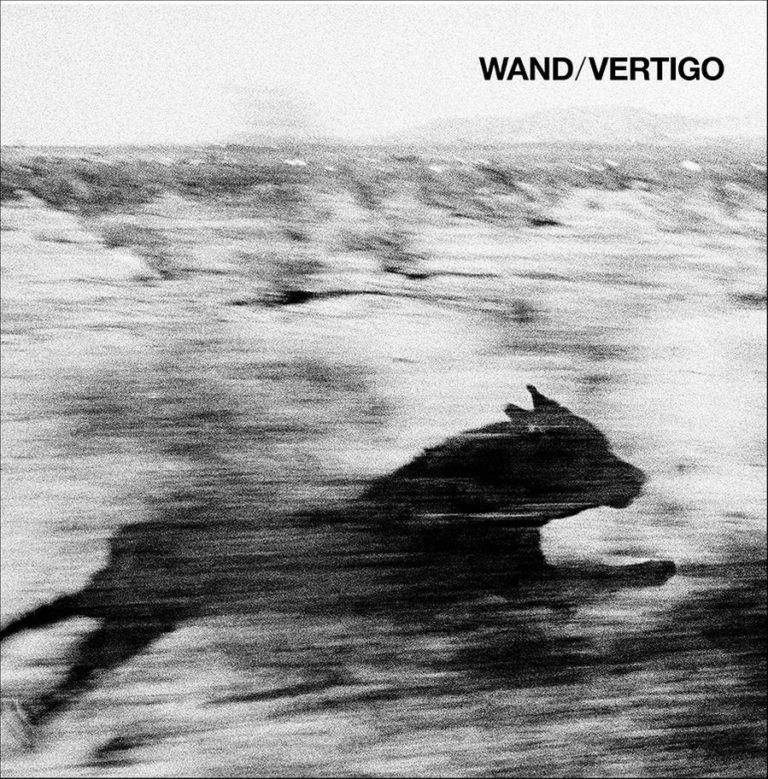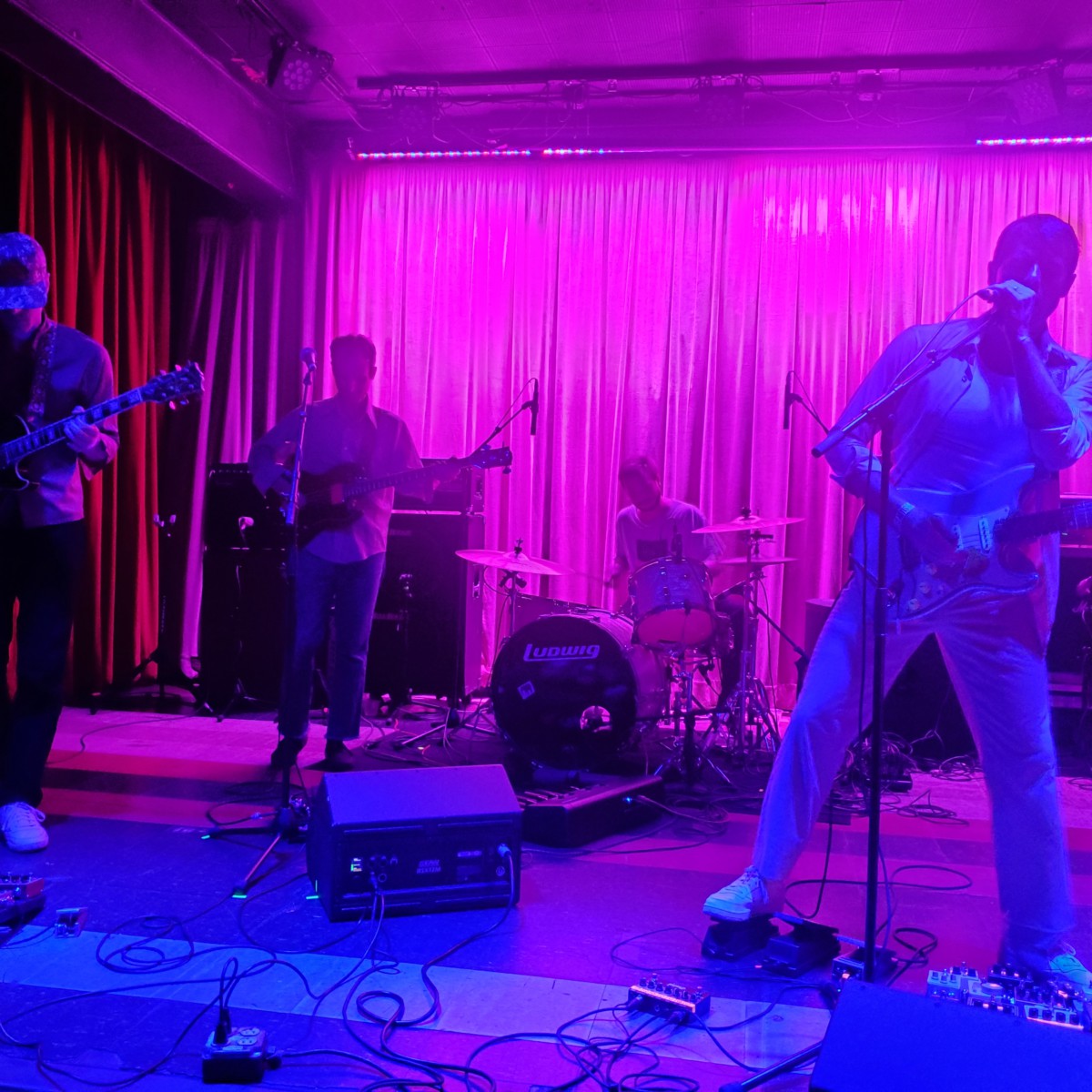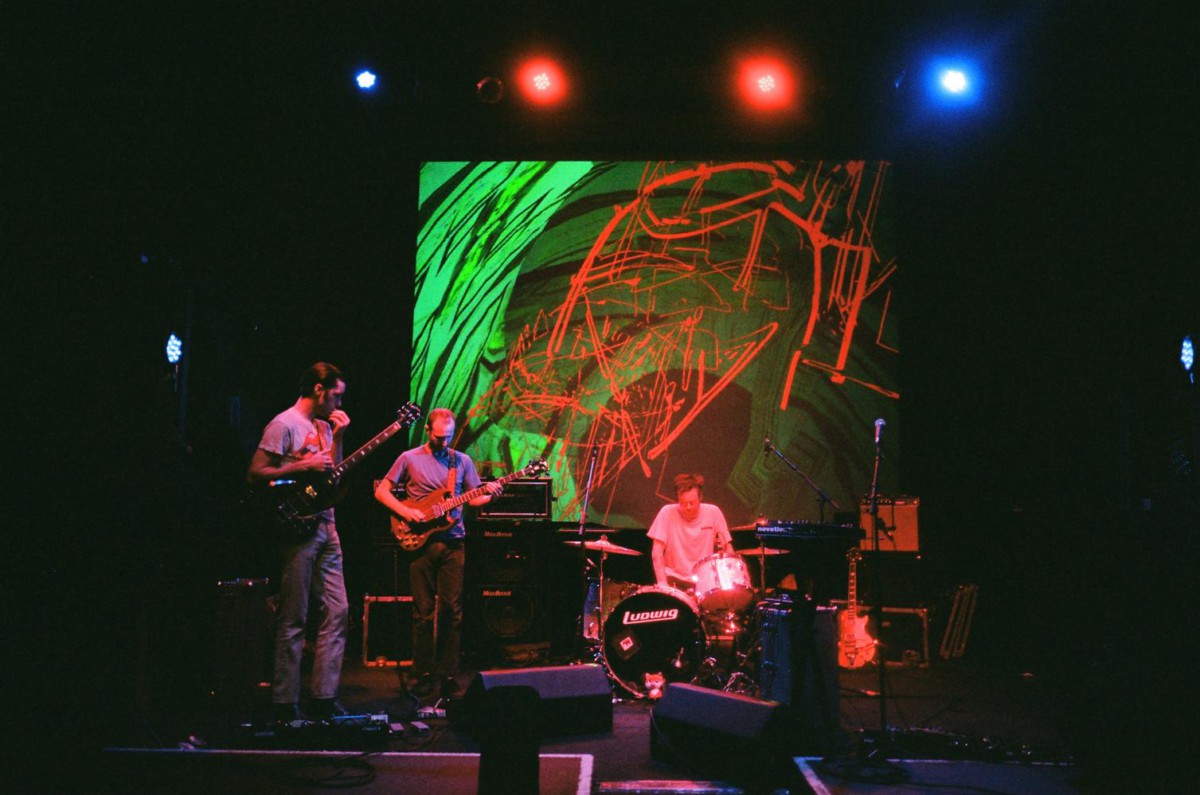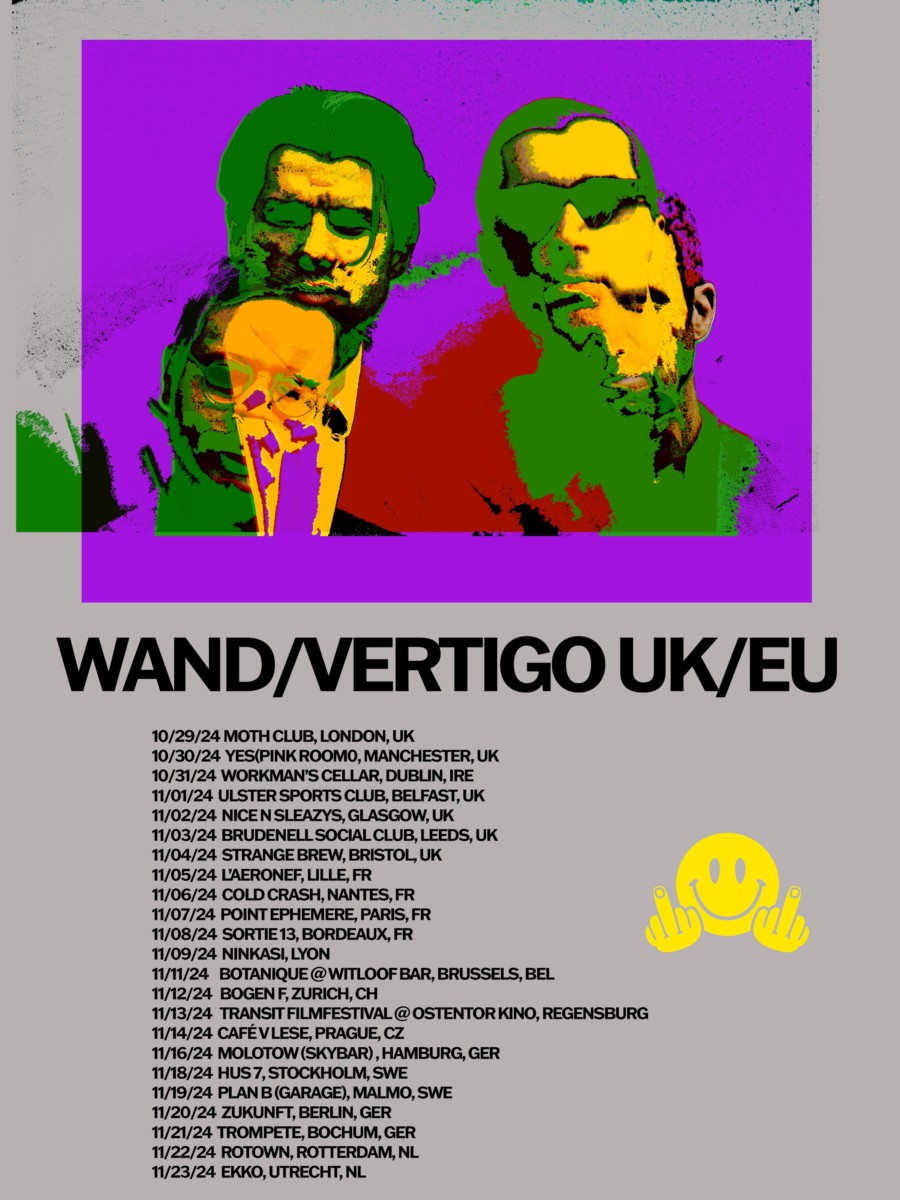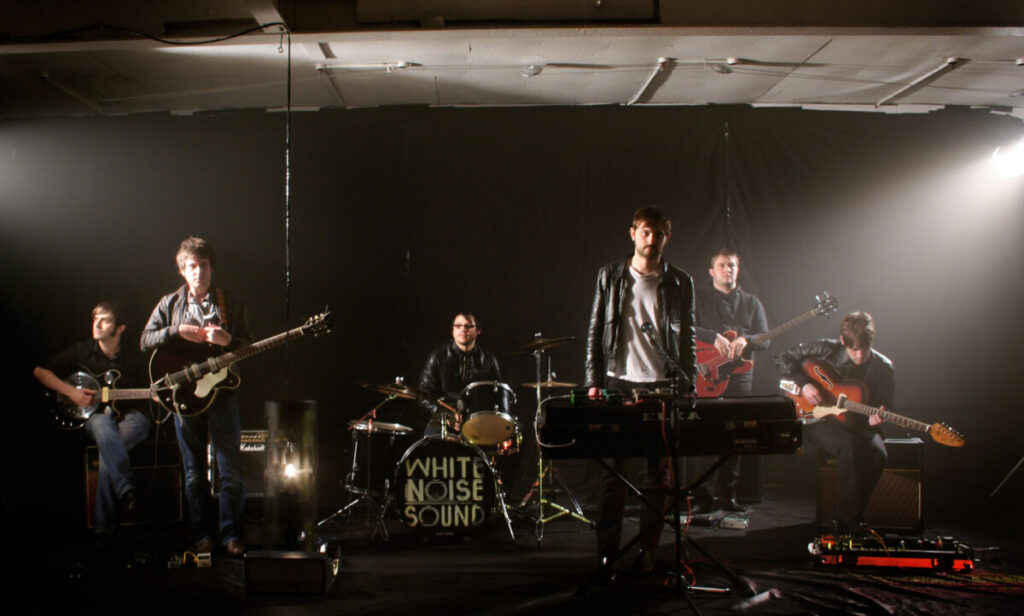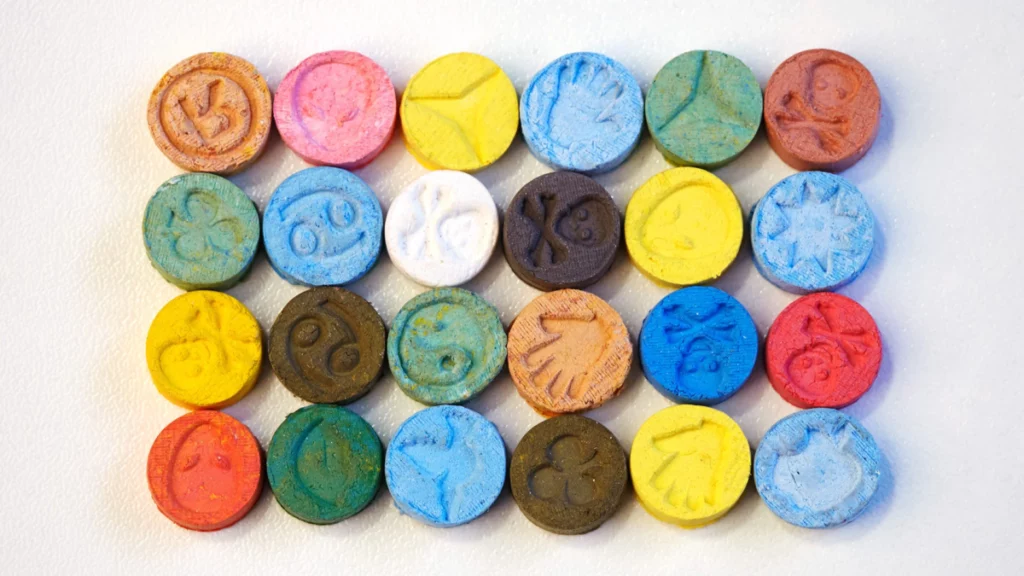Interview with Cory Hanson of Wand
Interview with Cory Hanson of Wand
LeValley:
I’m Jason LeValley with Psychedelic Scene, and I’m here today with Cory Hanson of the band Wand. Thanks for joining me today, Cory.
Hanson:
Yeah, sure. Happy to be here.
LeValley:
The new album is called Vertigo, and it seems to be a departure from Wand’s previous work. How do you think your sound has changed from your earlier albums to your most recent work?
Hanson:
Oh, it’s like a consistent departure from previous work. I think we’ve changed a lot in terms of lineup since the first few records. We’ve changed a lot in terms of approach and, in the beginning, I was the principal songwriter. I wrote everything. Now it’s a fully democratic organization.
LeValley:
I would have thought it would have gone the other way.
Hanson:
Oh, I would have gotten more mega-maniacal as the band grew more successful?
LeValley:
It seems to usually go that way.
Hanson:
Yeah, I know. But it’s difference for us because a band at our scale, with the amount of time investment and labor investment that goes with being in a band, It just made sense at a certain point to share. If we’re sharing the van space, the stage space, all this work, but not the creative labor, it just seems strange.
LeValley:
You do solo albums, too. Maybe it’s a little bit of a relief to have others in the band writing some of the material.
Hanson:
In the beginning, that was what was happening. We did those three records, and I wrote most of the music. I wrote all the songs, and I was feeling really burned out from writing by myself. That was how we started all writing together. It’s cool. Yeah, it’s great because now I can make my solo records and have time to really focus on those things that I do myself. But then there’s also the Wand stuff, which we all write together. It allows for a lot of space for both those projects without feeling crushed by either creative process or burned out by it.
LeValley:
Sure. Your albums have a lot of strong thematic elements. What theme or concepts were you exploring with Vertigo? I’ve listened to the album several times, but I haven’t analyzed the lyrics, and I just wanted to get your input.
Hanson:
I think we didn’t really have any criteria for themes or even composition or anything going into it, going into making the record. It was a It was a very organic process of just playing together without really talking about what we were going to play or what we were going to do and just doing free form improvisations in front of microphones and then taking that material and then listening to it and then being like, ‘What is this piece of music, this unformed free piece of music? What is it telling me? What is it telling us? And what is it saying as a complete idea just by itself?’ The first step in that process was finding pieces of music that we had jammed out that felt like they were saying something complete. It wasn’t this little fragment of a song or something or a melody. These are things that felt like they had integrity to stand up on their own. Then after that, you listen and be like… Because there was only three of us playing on those jams, so it’s just listening to all of those individual parts that we’re playing and being like, ‘What is that piano part implying?’
Hanson:
Or what is that guitar part? What are the implications of this rhythmically, melodically, compositionally? And then using that as a way to build a song just out of nothing, as opposed to waiting for inspiration to strike or whatever, writing something in a more conventional way.
LeValley:
Sure. Okay.
Hanson:
It’s a weird process, but it worked for us. I think I wouldn’t recommend it for any band. If you’re just starting out, I would never recommend doing this process because your band will end very quickly. It requires a lot of trust, and that trust is something that you get from playing for a decade together.
LeValley:
You mentioned that there have been a lot of lineup changes. Has there been a core three of you playing for a long time?
Hanson:
Well, there’s been… Evan Burrows, the drummer, and I have been consistent throughout all the lineup changes. And Robbie is the next in line. We were the three-piece for this record, and then Evan Backer joined on bass and also wrote all the arrangements for the strings and the horns and whatnot. Everybody else was in the band for three to four years, sometimes one year, sometimes one tour. Then they were like, ‘I got to get the fuck out of this outfit.’ Yeah.
LeValley:
Well, I saw you perform recently, and I was surprised at how heavy you sounded, how heavy Wand sounded. How do you approach transitioning your studio work into live performances?
Hanson:
It took a minute to recompose all the stuff that’s on Vertigo into live songs, but we did everything because it’s such a dense studio record, it’s got tons of strings and all that. But it was just like, again, it was listening to the songs and being like, Okay, instead of how do we make this a bigger, lusher musical world like we were trying to do when we were recording and mixing the record. Now it was like, okay, how do we reduce this again to its bare simplest element so that we can play these and have fun playing them and not feel like, fuck, I’ve got to hit a bunch of triggers. I’ve got to hit some synthesizers and make sure that all the sounds are there. We tried that to a degree, and then quickly we’re like, ‘This is not fun’. I think fun is like, if you’re going to go out and play for 80 shows a year or more, then it has to be fun, and it has to feel like things are shapeable and movable. It has to be liquid for it to feel like you’re doing something different and not just banging your head against the same compositions every night.
LeValley:
Sure. It’s work, but playing music is supposed to be fun.
Hanson:
I have to remind myself that all the time, and most musicians forget it.
LeValley:
Yeah. How does working on solo projects differ from working with Wand in terms of creative freedom and collaboration?
Hanson:
It’s more conventional, the solo stuff. I sit and I write on a piece of paper and write lyrics and have a writing process for that. Wand is totally open canvas. Anything goes and we’re all very involved in the process. Everybody’s like, even if there’s more like any band organization where people have to take a more passive back seat so someone else can do something in that moment because they’re inspired. That is a whole thing that Wand does that does not really happen with the solo stuff. It’s just me writing things like a conventional songwriter that I’ve reluctantly become over the years. I really had no desire to be a songwriter for many years in that sense because it sounded like something that was really serious with an acoustic guitar sitting at the piano being like, ‘God, did I say something really powerful and meaningful. I just felt like, well, what the fuck do I have to say? Who cares? I’m just a person’. But then through doing Pale Horse Ryder, really, and then Western Cum, also, I discovered, oh, no, it doesn’t have to be serious. It can be humorous. It can be all kinds of things.
Jason LeValley
Hanson:
It can be happy, it can be sad. And there can be drama, there can be light moments. So now I sit and write at the piano.
LeValley:
What were those things that you just mentioned? You mentioned some things that I wasn’t familiar with.
Hanson:
Just now. What?
LeValley:
Things that shaped your writing or something.
Hanson:
Oh, the Pale Horse Rider record. Yeah. Okay. And then Western Cum was the second record.
LeValley:
Oh, got you.
Hanson:
Okay. Yeah. Those are records that I did.
LeValley:
I’m sorry. I should have known that.
Hanson:
That’s okay.
LeValley:
Do you have any upcoming solo projects or that you’re excited about?
Hanson:
I do. Yeah. I have tons of stuff that I’m working on right now in various states of production. It’s going to be a busy time the next couple of years, for sure.
LeValley:
Okay. You’re going to be doing a European tour soon, is that right?
Hanson:
Yeah, with Wand.
LeValley:
With Wand, okay. How has being a musician impacted your life outside of music in terms of personal growth as an artist?
Hanson:
Personal growth?
LeValley:
Human growth, not as an artist.
Hanson:
How has being an artist impacted my personal growth?
LeValley:
Exactly. Yes.
Hanson:
Okay. I think it’s not necessarily the best thing for personal growth. I think that in some ways being an artist or being a writer, really, once you get into the process, it really creates this separation between what is present, being in the moment. It starts to narrative-ize every moment. Because being a songwriter, you’re constantly searching for a line or a phrase or something that’s going to trigger this avalanche of inspiration or whatever. I read about this in Keith Richard’s autobiography. He talks about this a lot, that It’s just that you are… There’s a separation. It feels like you’re looking at everything through glass. It can make relationships, and also my relationship to myself, more complex than it has to be. Or because there’s a delay. But I think this is a more common problem that people have now that everything is about your social media persona and having this separation with your friendships and your relationships and yourself. Everybody has this social identity through the phone. I think it’s maybe like that.
Courtesy of Cory Hanson
Hanson:
But the another thing is it helps me tremendously to have documents of things that have happened in my life or parts of my life and to be like, Oh, well, this record, I was going through this. And this record. Like, oh, yeah, this thing was happening. I remember records that way. In my case, I’m just making documents like I would put them in a journal or something. But they’re records. For me, because I’m pretty honest about the work that I make and earnest about the way that I make it, I can look back at them and see them that way without being like, Oh, yeah. I was trying to do… I don’t look at any of my work and think like, oh, I was being really dishonest here. I don’t know. I’m veering off in a bunch of different places with this answer, but it’s a hard question to have a concise answer to.
LeValley:
Yeah. No, I think it’s a great answer. Interesting that you document your life through your albums.
Hanson:
Yeah. I think that’s what they’re there for at the end of the day. It’s like a proof to me, I love to document stuff. I take photos of everything, analog photos. I’m obsessive about documenting, not my day to day or anything. I’m not taking pictures of my meals. I don’t care about that stuff, but just little moments where it feels, where I sense a presence. I’ll try to document it.
LeValley:
Wand is, of course, known as a neo-psychedelic band. Are you influenced at all by a psychedelic substances?
Hanson:
Absolutely. Yeah, definitely. I think the entire band is very much influenced by experiences that– very personal experiences that we’ve had with various hallucinogens.
LeValley:
Do you guys trip together as a band?
Hanson:
Oh, yeah, we have definitely. Not as a unit, with the purpose of being a band tripping together, but we’ve all tripped together plenty of times. Yeah.
LeValley:
Cool. All right.
Hanson:
Because this is a psychedelic magazine. It’s about a drugs?
LeValley:
Well, it’s about psychedelic culture, a lot of music stuff. But yeah, you’re on the right track, Definitely. We publish articles about personal psychedelic healing journeys and psychonaut accounts and so forth. So yes, we are interested in anything having to do with psychedelics. What are some of your favorite moments from your time with Wand, whether it be in the studio or on the road?
Hanson:
I love making the records. I think those moments I’m always the most fond of working in Sonic Ranch near El Paso, Texas. We got some mushroom chocolates from a guy named The Dragon. I think that was his name, The Dragon. And Yeah, he gave us some mushroom chocolates. And on the last day, it was the last day of mixing, and so we mixed some music really high on mushrooms, and that was pretty fun. None of it, I don’t think any of that made it onto the record. But maybe one mix did. I can’t remember. But yeah, that was really fun. Working on Vertigo was probably the most fun I’ve had making a record because we just had no idea what the hell we were doing the entire time. We all just had to be okay with that and be like, ‘Whatever this turns into, if people hate it, if people love it, whatever, I don’t know. We have to be…’. Again, it was about being honest about who we were and being like… Because being in a studio is so much about masking your mistakes and taking away all the rough edges and making something pristine.
Hanson:
For us, I think we definitely care about making the best possible sounding records that we can. But we also care about the integrity of the performances themselves. If we’re doing something that really feels like it’s who we are as a group. I think that because we were doing that and just being ourselves, it’s the most fun when you’re working on shit like that and you’re just responding to things comfortably and being creative with other people, and they’re just immediately being like, ‘Yeah, that’s a great idea’, or ‘No, that’s not so good’. And you’re like, ‘Oh, okay, cool’. Like, whatever. We’re going to do this together.
LeValley:
Where would you rank Wand in terms of your total output? I’m sorry, Vertigo, not Wand.
Hanson:
Where would I rank it? Oh, hard number one. Big time, yeah, number one. I’d say, yeah, it’s what we… That’s the record that we all dreamed about making when we were kids. When I was a kid, I was like, I always wanted to make a record that I felt like stood alone, didn’t sound like anything else, and took some serious chances. It does something that most records don’t do, really, for me, which is that it’s somehow… It rides a line between… There’s a tension between the conventional song structures and this meticulously designed thing. Then on the other hand, it’s constructed purely out of these really simple rock and roll jams that are super natural moments that we spent an eternity trying to get this very natural feeling We went through 50 hours of jams to find these moments where we were like, There it is. That’s the thing. That’s what needs to be on the record. And then pulled that out, turned it into song.
LeValley:
Cool. All right. Well, last question here. If you could collaborate with any living musician, who would it be?
Hanson:
Joe Bonamassa. No, I don’t know. Living musician? Living Musician. Who’s someone I would collaborate with? It’s a good question. Why can’t I think of anyone?
LeValley:
Think big.
Hanson:
Yeah. I mean, Kanye West would be amazing. But who else? But if he’s up for it. Yeah, I’m not sure who I would collaborate with, who I couldn’t already just collaborate with. I think Kanye West might be the best answer.
LeValley:
Okay, we’ll go with it.
Hanson:
Believe it or not.
LeValley:
Well, I’d love to hear that collaboration.
Hanson:
Okay. You’ll be the first to hear it.
LeValley:
Okay. Well, Vertigo is out now. I think it’s on all streaming services, and it’s in record stores. And correct me if I’m wrong.
Hanson:
What? Oh, yeah, it’s out there. It’s out there. Yeah. Yeah, yeah. You can go to your local record shop, and if it’s not there, you can probably order it through the shop.
LeValley:
Yeah. All right. Well, Cory, thanks so much for taking the time to speak with me today. I really appreciate it.
Hanson:
Yeah, dude. Nice talking to you.
LeValley:
All right. Take care.
Hanson:
Take care.
Wand on Bandcamp
The Top 100 Neo-Psychedelic Albums
Gallery
Recent Articles
The Best Way to Do MDMA-Assisted Therapy
•
February 27, 2026
Unicorn by Rio Kosta–Album Review
•
February 24, 2026

Loading...
